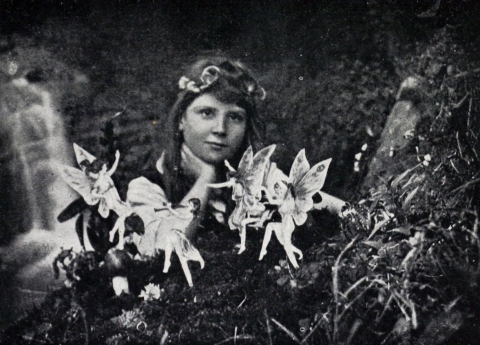The Love Talker (1980)
Listening: Magic
Laurie Carlson has the winter-in-Chicago blues, with a recent breakup under her belt and a dissertation still to write. So the plea to visit the family home in Maryland, the lovely Idlewood, is easy enough to acquiesce to. The letter's concerns about her great-aunt Lizzie and her worrying behavior aren't really alarming, after all--Lizzie has always been eccentric. But Laurie sees mysterious lights and hears haunting music in the forest surrounding Idlewood, and Lizzie has taken to sleepwalking in the snow. Are there really fairies in the woods, or is a more human malice at work?
Spoilers below:
Love Talker is a variation on a familiar theme, much like Wait for What Will Come. Young woman, old house, family secrets and a suggestion of supernatural interference, with a move away from ghostly intervention into something a little more fey. Laurie is our (now) standard academic woman, and Doug Wright her snarky, combative, and yet amusingly lovable assistant in deduction.
Laurie and Doug are an interesting choice as the romantic/mystery-solving pairing--in MPM's Amelia Peabody books, Ramses and Nefret are raised as siblings from ten and thirteen respectively on, which does not stop Ramses from fostering a long-enduring love for his beautiful 'sister'. Here the pair have been raised as half-siblings, but half-siblings who barely know each other. At the end of the book (spoiler!), it is revealed that Doug was actually adopted, and has known about their lack of relationship for a long time, which accounts for undertones that the reader might otherwise have missed, or raised an eyebrow at. It's a curious choice to engage in that kind of fauxcest here, but simultaneously, it relegates any real romantic development to after the book, leaving Love-Talker mostly free of it. It does stand, nonetheless, as an interesting foreshadowing of the more effective technique she'll use later.
Love-Talker is redolent with Victorian poems (Rossetti's "Goblin Market" for one) and books (Conan Doyle's The Coming of the Fairies) about fairies. So if you want a crash course in fey lore, this is a good place.
However, I would be remiss if I didn't address the one really disturbing element of the book, which jars now, but perhaps did not so badly in 1980: the beautiful Rachel Wilson, distressingly underage in her teens, but heavily sexualized by everyone who sees her. Seeing full grown men salivate over a high school student is nauseating, especially when at least one of them is supposed to be the hero.
On the plus side, Aunt Ida, Aunt Lizzie, and Uncle Ned are just pure delights, reclusive, animal-loving, and deeply adoring of their great-niece and -nephew. As always, MPM pauses to reflect on the cruelty of old age, which so often confuses youth into the thinking the elderly have never lived--but Ned's trauma from World War I and Ida's sad and secret love affair add texture and dimension, reminding us that a long life lived only means more stories to tell.
Rating: ****
Favorite Line: "You're damned right I'm a feminist!"
*If you're curious, the poem referenced in the title is this one: The Love-Talker


Comments
Post a Comment